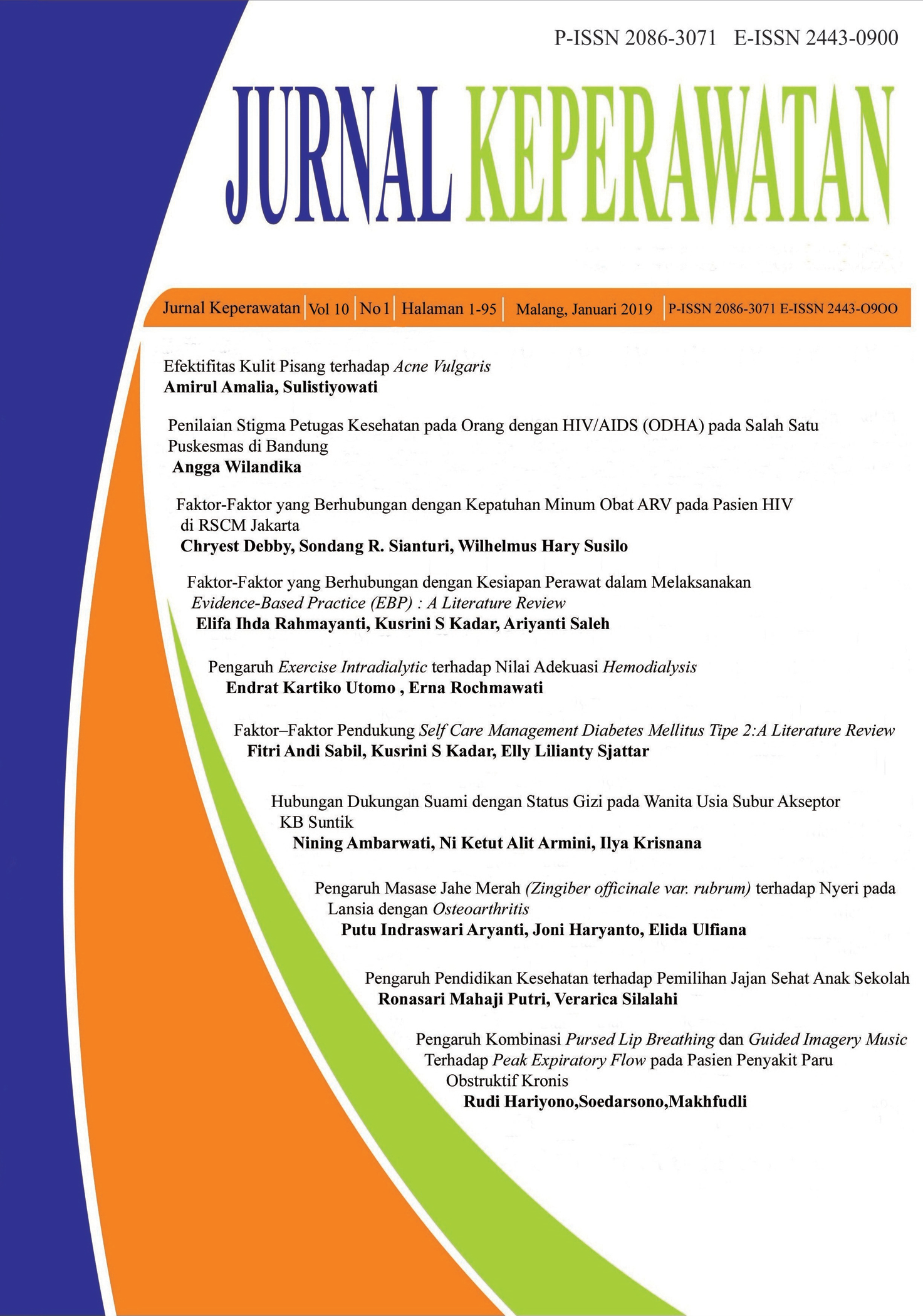Factors Related to Compliance of ARV Medication in HIV Patients at RSCM Jakarta
DOI:
https://doi.org/10.22219/jk.v10i1.5886Keywords:
Adherence, HIV/AIDS, Antiretroviral TherapyAbstract
Antiretroviral therapy is believed not to be able to cure the disease; however, it can reduce mortality and morbidity. It also improves the quality of life of people with HIV. The success of the HIV/AIDS treatment is determined by adherence to antiretroviral therapy. ARV therapy is given in a long run and can be said as optimal if the compliance reaches more than 95%. The purpose of this study was to determine the relationship between certain factors and adherence to ARV therapy in people with HIV/AIDS. The design of this study was a descriptive correlational study with a cross-sectional approach. A total of 198 patients were recruited through a purposive sampling technique. The result of the study showed that there was no relation between adherence with age (p-value of 0.327), education (p-value of 0.859), and treatment (p-value of 0.74). From this study, it can be recommended that nurses need to improve their HIV counseling skills, especially about the benefits of adherence using a communicative media. Hospitals should also encourage more support to achieve better adherence in patients living with HIV/AIDS.
Keyword: Adherence, HIV/AIDS, Antiretroviral Therapy
Downloads
Downloads
Published
Issue
Section
License
Authors who publish with this journal agree to the following terms:
- Authors retain copyright and grant the journal right of first publication with the work simultaneously licensed under a Creative Commons Attribution-ShareAlike 4.0 International License that allows others to share the work with an acknowledgment of the work's authorship and initial publication in this journal.
- Authors are able to enter into separate, additional contractual arrangements for the non-exclusive distribution of the journal's published version of the work (e.g., post it to an institutional repository or publish it in a book), with an acknowledgment of its initial publication in this journal.
- Authors are permitted and encouraged to post their work online (e.g., in institutional repositories or on their website) prior to and during the submission process, as it can lead to productive exchanges, as well as earlier and greater citation of published work (See The Effect of Open Access).

This journal is licensed under the a Creative Commons Attribution-ShareAlike 4.0 International License.














